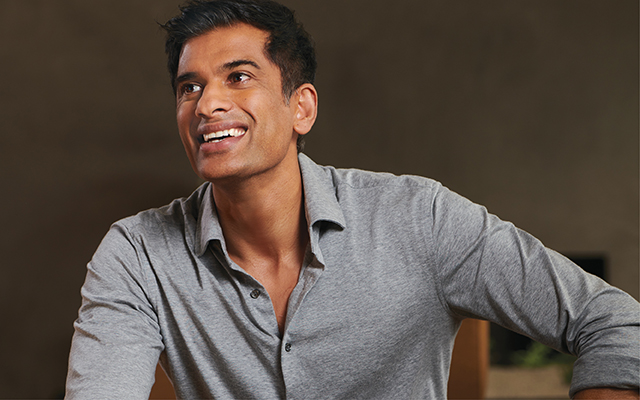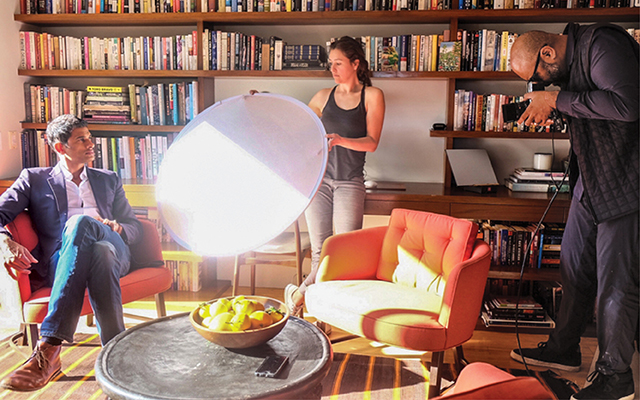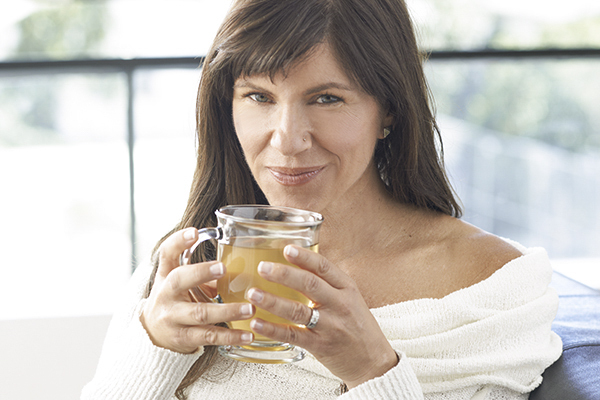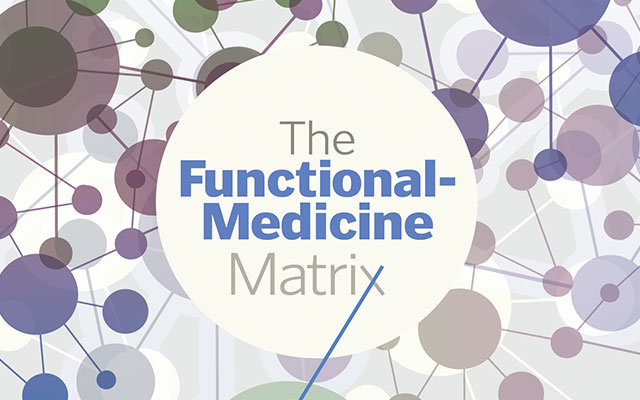A single incident changed how British doctor Rangan Chatterjee practiced medicine. While on vacation in France six years ago with his family, his then 6-month-old son had a convulsion. After a harrowing evening in the emergency room, they discovered that it had been caused by a preventable vitamin deficiency.
“I couldn’t believe that, as a doctor, I hadn’t diagnosed the problem,” Chatterjee says. “But it drove me to learn why it happened and how I could undo the damage it caused.”
His research led him to functional medicine, a whole-person approach that aims to uncover the root causes of disease. Chatterjee, now 40, began applying the principles to his own family’s health. “My 7-year-old son is thriving,” he says.
He uses this expanded set of healing tools with all his patients, too. “Conventional medical training that focuses on treating symptoms is useful for acute problems,” he notes, “but it’s not as helpful for dealing with the epidemic of lifestyle-related conditions flooding our offices.”
In 2016 Chatterjee brought these ideas to a wide audience via a groundbreaking BBC One television series, Doctor in the House. On the show, Chatterjee’s house calls provide insights into his patients’ health that typical clinic visits don’t. By observing how people eat, sleep, move, and cope with stress, he notices patterns and other factors — such as the role of support systems — that affect their health.
Chatterjee shares his prescription for well-being in his new book, How to Make Disease Disappear, and a new podcast, Feel Better, Live More. “Our lifestyles can truly be our best medicine,” he says.
Q&A
Experience Life | How has the way you practice medicine changed?
Rangan Chatterjee | I’ve always felt a slight disconnect with the way I was trained to look after patients and the practice of medicine. After medical school, exams, and rotations, I was frustrated by how specialized medicine was and shifted to general practice because I thought it was undervalued and was a way to help more people.
I’ve seen tens of thousands of patients in my 16 years of practice, and what I’ve learned is that everyone has the ability to feel better than they currently do. When I started using functional-medicine principles to treat patients, I found for the first time in my career that people were truly getting better.
I love interacting with my patients and trying to figure out the cause of their problems and how to inspire them to make a change to rid themselves of the condition. Honestly, it’s addictive! I’ve never enjoyed medicine as much as I do today.
EL | You describe four pillars of health in your new book — what are they and why are they important?
RC | Modern life is having a negative impact on our health, but I’ve realized that good health comes down to four key areas: food, movement, sleep, and relaxation.
Most people already understand the importance of the first two — what we eat and how often we move. But I believe sleep and relaxation, or stress management, have had their roles in our health downplayed.
Everything in the body is connected, which means good health is a combination of everything we do. That’s why I’m so passionate about this four-pillar approach. If you change one thing, you change everything.
EL | What are some ways to prioritize each pillar?
RC | For food, it’s less about worrying about fats, carbs, and protein, and more about focusing on eating whole foods. Make your house a safe zone by minimizing the processed foods in your kitchen so you won’t be tempted. It’s a toxic world outside your front door, and it’s hard to make the best decision out there all the time, so control it where you can.
Move in ways consistent with human biology, which means moving all the time, not just for a concentrated time each day. So, while it’s important for people to hit the gym, I also encourage them to take 10,000 steps a day. It’s a simple, motivating, trackable goal. Also, don’t forget about strength training. You can do body-weight movements for five minutes a day and see remarkable differences.
If we all prioritized sleep for a week, it would be life changing. But we’re all busy and have many distractions that keep us up late. My simplest tip for prioritizing sleep is “No Tech 90”: 90 minutes before bed, switch off all the electronics.
Finally, the pillar I’m most passionate about, and the one I struggle with the most, is relaxation. Five years ago, I would have said food is the most important pillar, but I’ve changed my mind. It’s relaxation. Our brains are on overload from the minute we wake up to the minute we go to sleep. My tip is to spend 10 to 15 minutes every day on “me time” — that means doing something, unashamedly, for yourself every day that doesn’t involve your phone.
EL | What have you changed in your own life to prioritize the four pillars?
RC | I completely changed my diet. It was difficult at first — I would get tempted by processed foods — but if you keep eating whole foods, it’s amazing how your taste buds change and how much less tempted you get.
My family also made the decision to sit around the table each evening and eat together. My wife, kids, and I also do a gratitude exercise that involves answering three questions: What have you done today that has made somebody else happy? What has somebody else done for you today to make you happy? What have you learned today?
Doing this has brought us closer as a family. It also really shifts your mindset. We’ve all felt the benefits.
EL | What have you learned from doing the show Doctor in the House?
RC | Every single person I see on the show — who had all worked with general practitioners and specialists — see health improvements. Why can I get these people better when others in the medical profession haven’t been able to? It’s not because I’m anything special; it’s because I take a different approach, and its foundation is the four pillars. That’s empowering for me, patients, and the millions of viewers tuning in.
I felt really exposed, too. As a doctor, you’re insulated by the four walls of a consultation room. You can stay emotionally detached, which I think allows you to keep going on with your day seeing lots of people with lots of different problems.
But on the show I get to see patients experiencing health problems — like migraines — in their daily lives. It’s different to see people and their families going through something in person than hearing about it during a clinic visit or reading about it in a textbook. They become more than patient names on a list. Their suffering motivates you to figure out what’s causing the problem. I feel so privileged as a doctor, and as a person, to have these experiences.
To learn more about Rangan Chatterjee, MBChB, check out his website.
This originally appeared as “The Best Medicine: Rangan Chatterjee, MBChB” in the May 2018 print issue of Experience Life.




This Post Has 0 Comments